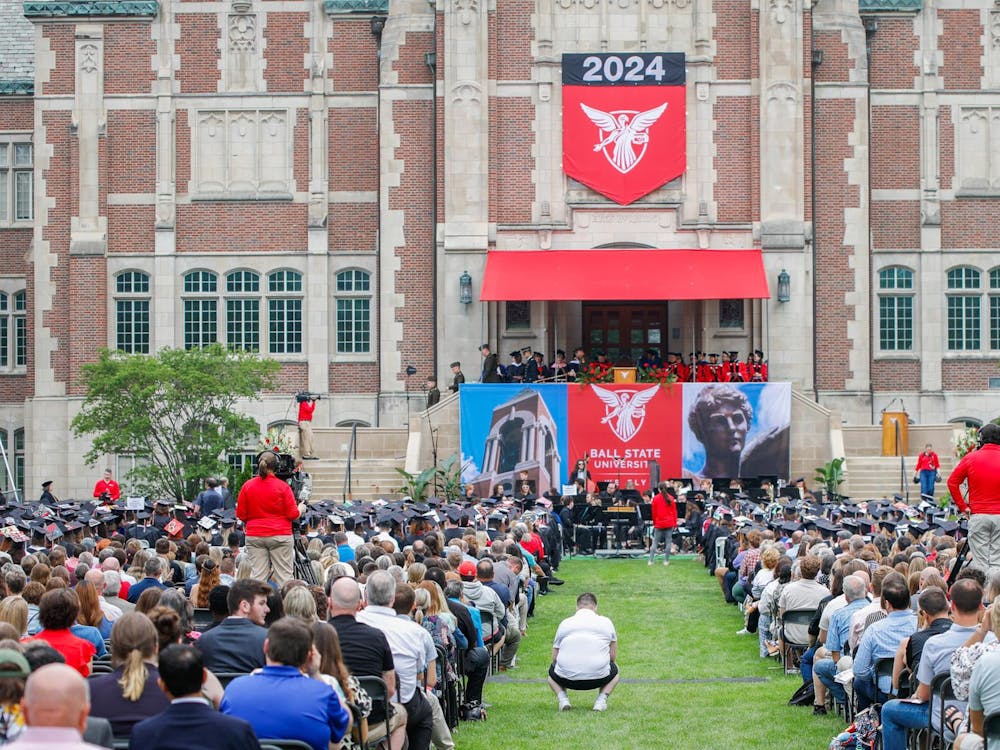In the current political climate, the term "snowflake" often whirls into the discourse between conservatives and liberals.
The term "snowflake" is meant usually for liberals or progressives, who are thought of as hypersensitive, overactive and unable to deal with differing opinions. It mostly finds its place in online comments, news headlines and unvoiced thoughts.
The term was originally used in the 1996 film "Fight Club," but in the heat of debate between liberals and conservatives, the nickname has made a comeback.
Many are left to wonder if there is too much sensitivity in current debates, or if the group of people dubbed "snowflakes" are just trying to combat hate speech.
Reacting to hate speech?
Vivian Edwards, vice president of Ball State's Progressive Student Alliance, has been called a snowflake in various instances when speaking up about her opinions.
In most cases, Edwards said she received the remark from people in Generation X (people born between the early 1960s to late 1970s).
Edwards recalls a time when she was discussing America’s foreign policy with a conservative and the argument turned towards her being a transgender woman. She was called a special snowflake.
Edwards views the term as a dismissive comeback, meant to disregard the logical argument on her side.
“The ‘special snowflake’ [comeback] is just a dismissal of that," she said.
Blake Conner, a sophomore digital video production major, also observes that the term is mostly used to dismiss someone else’s opinion, which he said is something both the left and right do.
Connor believes everyone should be entitled to their opinions. For him, opinions are like products in a free market. The bad ones will lose out to the good.
"Something a lot of people don’t realize is that hate and offensive speech is protected by the First Amendment," he said. ‘‘If someone can protest, then someone else can express offensive opinions."
Although there is no definite consensus about what is regarded as hate speech, it is generally defined as a personal attack against someone based on their attributes such as race, gender, sexuality and religion.
Often times, critics of "snowflakes" point to a non-existent danger with offensive or hate speech because there is no actual violence involved.
This leads to the characterization of those reacting against it as someone who cannot stand their feelings being hurt.
However, Edwards believes hate speech encourages violence towards minority groups.
"Hate speech is a form of violence," she said. "Your speech doesn't necessarily hurt me. I’ve experienced a lot. You saying mean words to me isn’t going to affect me, but your speech motivates hate[ful] actions against me.”
Sabrina Kilgore, a member of Ball State College Republicans, also believes hate speech is a real problem.
At the same time, though, she cautioned about the tendency to overuse it. She worries that it can lead to "The Boy Who Cried Wolf" syndrome.
"They scream hate speech so often that when there really is hate speech, people will be like, ‘Oh it’s probably just someone giving their opinion again,'" Kilgore said. "So it takes away from when someone is really using hate speech."
Is dialogue possible?
Kilgore identifies as a republican, which in the eyes of some liberals, comes with certain baggage.
"I know liberals who genuinely enjoy having a discussion and that goes very well. But there are others that are so set in the belief that I am a republican because I must be a racist, or I am a republican because I must hate women that they just won't hear me," Kilgore said. “I don't wanna listen to someone who sits there and calls me a misogynist and racist, so [the dialogue] just shuts down very quickly."
Benjamin McIntosh, a member of the Secular Student Alliance, views the lack of empathy as one of the causes of the current polarization in political discourse.
"A lot of the time, we don’t care about other people. And I think that’s a big problem. We don’t care to get know them on both sides. Liberal and conservative," McIntosh said.
Mcintosh draws from his experience when having discussions with his father, who is a moderate conservative. Although they have a lot of disagreements, they also find common ground in many things.
He found that only when he and his father opened up about their life experiences were they able to understand each other.
"We all have gut reactions," McIntosh said. "[But] I cannot demand that they conform to my perspective if I have no idea what they’re doing, what they’ve gone through or experienced."
Another factor to having productive discussions, McIntosh believes, comes from admitting one’s ignorance.
"I think that we are so uncomfortable with saying, 'I don’t know. I don’t have an answer for that. That’s uncertain to me,'" he said. "And that plays into a lot of issues with discourse being muddled."
Confined by our instincts?
Martin Smith-Rodden, a professor who holds a Ph.D. in Applied Experimental Psychology, views the emergence of the term "snowflake" as another culture war between the two political ideologies.
"It has to do with the different conflict styles between the two groups," he explained. ‘‘We can see an increase in heated rhetoric."
He identifies two main factors at play behind the polarization of opinions.
The first has to do with emotional intelligence, which refers to a person’s ability to recognize and handle their own emotions as well as others and was popularized by Daniel Goleman in his 1995 book.
Empathy is one part of emotional intelligence.
"We often forget to listen. We listen to respond rather than understand," Smith-Rodden said. "People tend to over-generalize. We tend to think in our own image, projecting it onto others, and when we meet people with opposing views, we tend to paint the other side as more extreme or wrong than they really are."
Another factor is the 'fundamental attribution error,' which is a bias one makes when explaining other people’s behavior, by emphasizing more on intrinsic characteristics rather than external factors.
Overcoming biases can be difficult.
"You are doing something counter-natural, you can say, to your primal instincts," he said.
Smith-Rodden observes that both sides of the political spectrum are lamenting about the divisiveness of the today’s politics.
"As my wife says," he added, "people will change their mind when the pain of changing is less than the pain of staying where they are."





